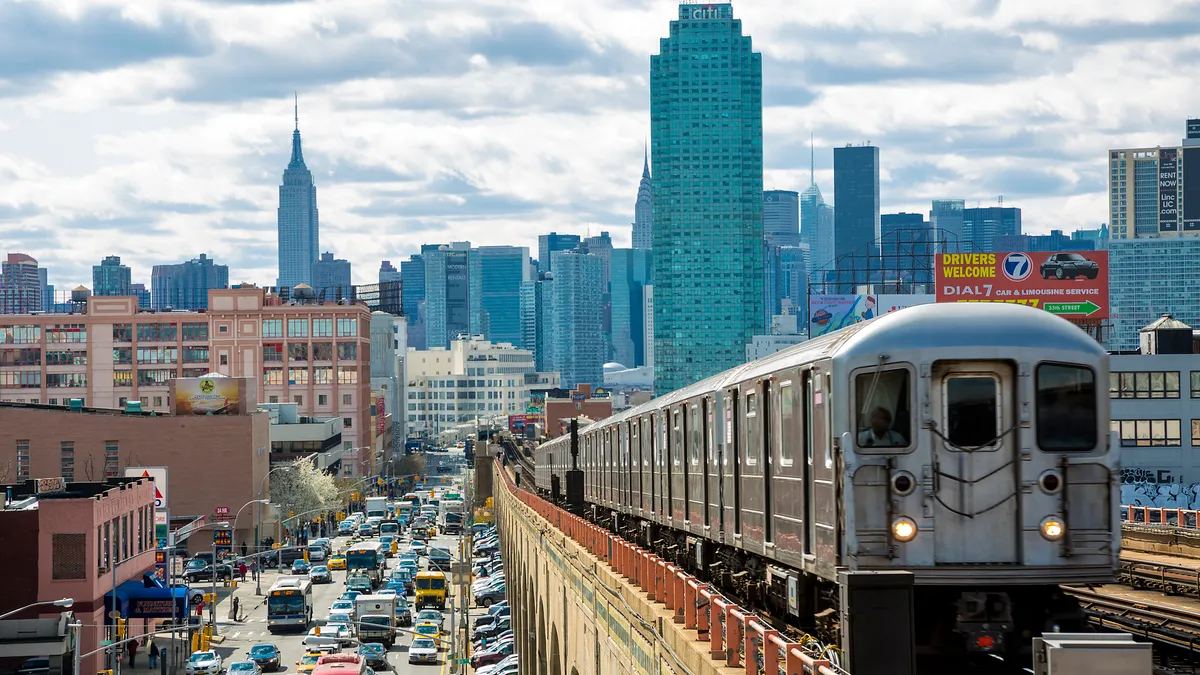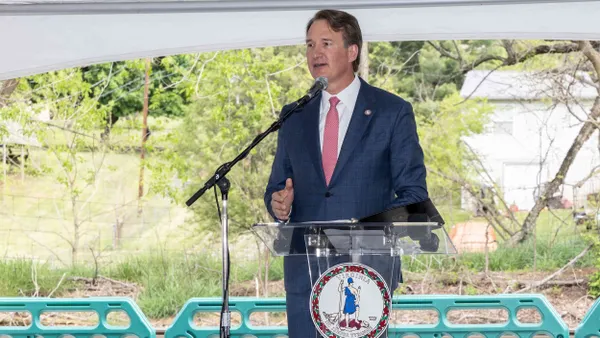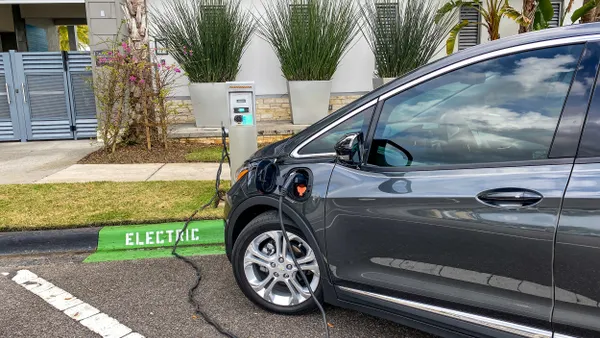Dive Brief:
- A coalition, led by the Alliance to Save Energy (ASE), on Tuesday issued more than three dozen policy recommendations, ranging from infrastructure development and electrification, to tax benefits for bicycle commuters and the development of a federal interagency task force.
- The 50x50 Transportation Commission seeks to halve energy transportation consumption by 2050, and has the support of investor-owned utilities, electric vehicle (EV) advocates and conservationists.
- The campaign calls for expanding and modernizing transportation programs, funding seaport and airport efficiency improvements, and strengthening investments in EV charging infrastructure, as well as in programs that would increase ride sharing, biking and walking.
Dive Insight:
The policy platform is a "blueprint for action by Congress," according to ASE officials, laying out specific recommendations on a diverse group of strategies including funding grant programs, strengthening transit systems and electrifying transportation.
"We can't keep doing things the same way or we will end up with an even more inefficient, congested, and dirty system that hurts American productivity and slows economic growth," ASE President Jason Hartke said in a statement.
The report concludes it is "well established that the United States is in urgent need of significant infrastructure investment," and many recommendations are aimed there.
Proper funding of a transportation overhaul would "lead to enormous benefits across society, including greater efficiency, economic productivity and competitiveness, access to affordable mobility, improved public health and air quality, and reduced greenhouse gas emissions," the 50x50 coalition concludes.
Recommendations in the report call for Congress to:
- Fund the Department of Transportation's Better Utilizing Investments to Leverage Development grant program at $2 billion annually and maintain that level for at least five years
- Allocate additional funding for the government's Surface Transportation Block Grant Program, to $20 billion annually compared with 2020 levels of $12 billion
- Reauthorize the Diesel Emissions Reduction Act, which provides grants to reduce emissions from existing diesel engines
- Reauthorize the Transportation Infrastructure Finance and Innovation Act program, which provides credit assistance for highway, transit, railroad, intermodal freight and port access projects
- Focus airport and port modernization efforts in a specific location within transportation committees
- Create a National Green Infrastructure Bank
- Improve the plug-in EV tax credit by converting it to a point-of-sale rebate, developing an incentive for used EVs and allowing it to "remain a critical enabler of EV markets until they reach viability."
"With transportation now the largest source of carbon pollution, there's an urgent need for new investments in transit, freight, ports and electric vehicle infrastructure," Roland Hwang, managing director of the Climate and Clean Energy Program at the Natural Resources Defense Council, said in a statement supporting the recommendations.
Other groups signing onto the recommendations include the Edison Electric Institute (EEI), which represents investor-owned utilities, Electrify America, the Sacramento Municipal Utility District, Navigant, National Grid, the International Brotherhood of Electrical Work, and Audi.
There are currently just over 1 million EVs on US roads, but last year EEI projected 7 million of the zero-emissions vehicles will be on U.S. roads by 2025.













